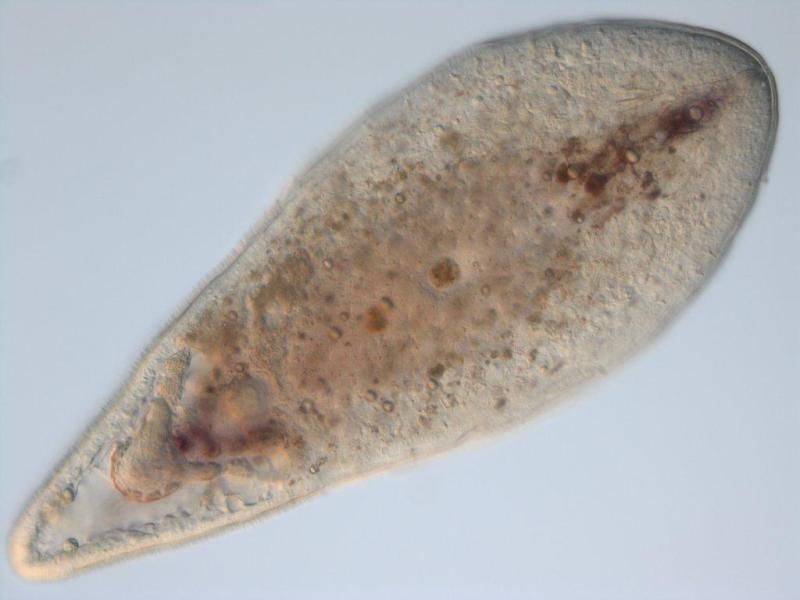Please note: Osher Rainforest will be closed for maintenance Jan. 14–16.
Science News
Wormy Tree of Life
February 10, 2011

Today is a very big day indeed for two types of marine worms. A paper in Nature not only proposes moving their position up in the tree of life, but creating an entirely new branch just for them! What’s more, news articles are saying these creatures have “evolved backwards”. Wha…?
Let’s try and break this all down together. Xenoturbella and Acoelomorpha are very simple animals—they poop and eat out of the same hole and lack a developed nervous system and gut. They were reclassified in the1990s as an early branch of evolution—the crucial link between the very simplest animals such as sponges and jellyfish and the rest of the animal kingdom including humans, starfish, insects and mollusks. But as DNA analysis continues to delve deeper, there has been some debate as to where these small worms fit in. (Nature News has a great diagram of their place on the tree before this study and after.)
Looking at DNA sequences, microRNA and mathematical models, the authors of this current study compared hundreds of genes from both Xenoturbella and the Acoelomorpha with their counterparts from a whole range of animal species to determine their evolutionary relationships. Their conclusion: both groups descended from the same ancestor as complex groups of animals that include vertebrates and starfish. Meaning? These mucky, sea-bottom dwelling animals are more closely related to us humans than they are to simple creatures like sea anemones.
Yet, since these marine worms are small and simple beings (one species even lives in the throat of a sea cucumber!), the researchers believe that they evolved backwards—that they must have lost a lot of the complexity they originally possessed.
Talk about shaking the tree! Author Max Telford, of the University College London, had this to say in a press release:
We can no longer consider the acoelomorphs as an intermediate between simple groups such as jellyfish and the rest of the animals. This means that we have no living representative of this stage of evolution: the missing link has gone missing!
But not everyone is convinced with the newly proposed tree of life. Nature News quotes several scientists who are critical of the study. Andreas Hejnol, an author of a previous genetic study of acoelomorphs, had this to say:
I'd be upset if their analysis was excellent and it meant we lost a representative animal to bridge an important transition in the tree of life.
Who knew small, simple worms could create such a fuss?
Image credit: Dr Bernhard Egger, UCL